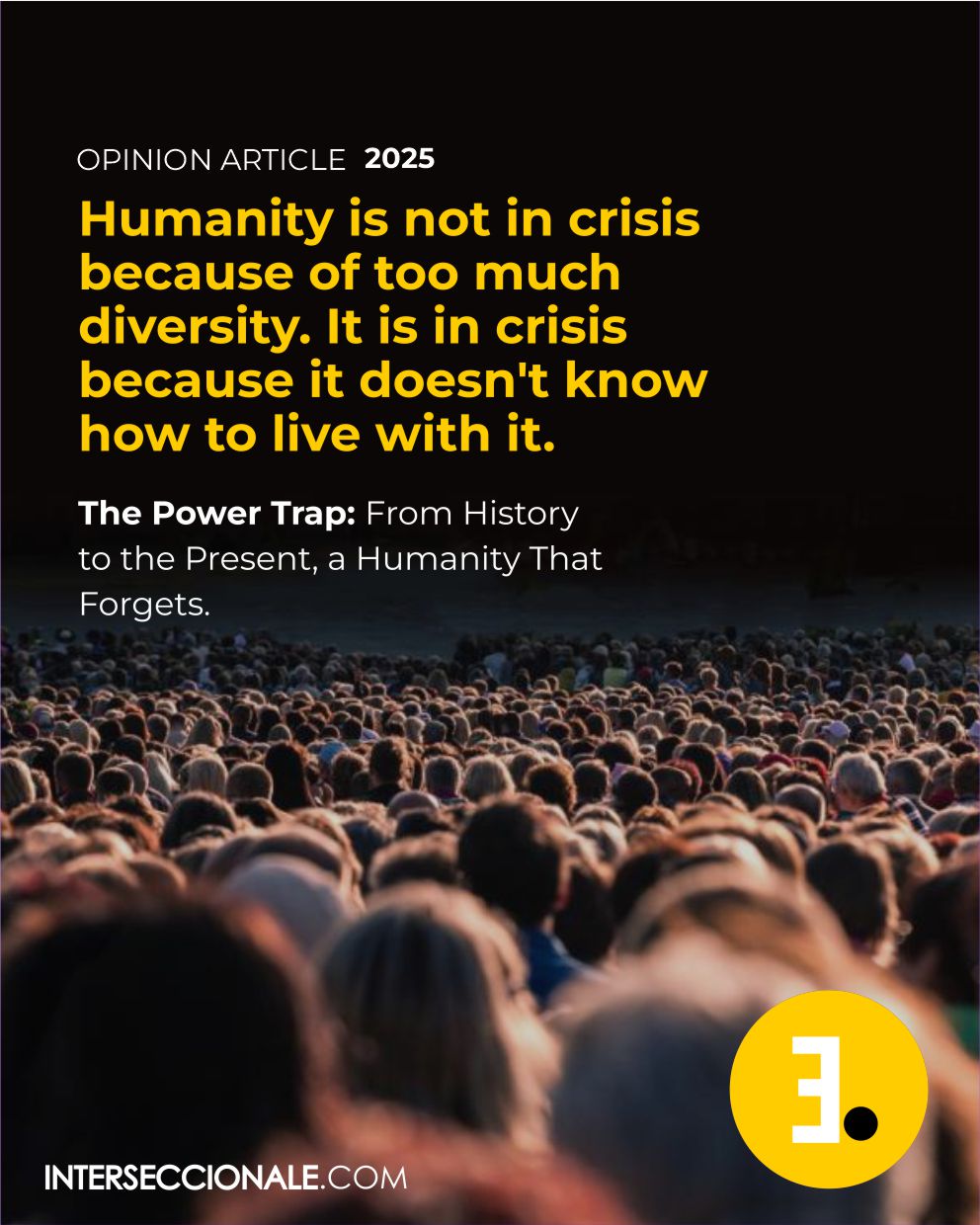The Power Trap: From History to the Present, a Humanity That Forgets
Humanity seems to have a short memory. Despite centuries of history, documented wars, testimonies, and treaties calling for equality, we continue to repeat the same mistakes: fearing the other, imposing a single worldview, and using difference as an excuse to exclude.
Since ancient times, power has sought to shape what it means to be human according to its own interests. Entire empires were built on racial, cultural, or religious hierarchies. The Roman Empire called “barbarians” those who didn’t share its language or gods. In the Middle Ages, anyone who strayed from dogma was silenced, tortured, or disappeared. Later, modern slavery turned human beings into property, while colonization imposed languages and religions under the banner of supposed superiority.
In the 20th century, the Nazi regime took this logic to the extreme: the extermination of millions was justified by a racial fantasy with no scientific basis. The “other” stopped being an equal and became a threat to be eliminated. And while this dark chapter should have transformed us as a species, today’s headlines reveal that it didn’t.
The 21st century began with promises of human rights, globalization, and inclusion. But power adapts. Today, no concentration camp is needed to segregate—just a social network, a polarizing narrative, or a biased law. Language has become a battlefield, where using the wrong word can cost reputations, jobs, or even lives. This isn’t just about the rise of hate speech; we must also talk about toxic activism and the extremes that, in the name of justice, reproduce the same exclusionary practices they claim to oppose.
Silencing those who think differently, ridiculing those who make mistakes, canceling those who dissent—all of this has consequences. When a single moral standard is imposed, nuance is lost. And without nuance, there is no understanding, no growth, no real inclusion.
From a neuroscience perspective, the human brain needs to label what it sees in order to process it. But when a difference doesn’t fit familiar categories, the brain reacts with alertness—even fear. This is where many prejudices begin. But fear should not justify exclusion. The real challenge is to recognize difference without fearing it, to understand that people are defined by their actions—not by skin color, religion, or accent.
A criminal is a criminal because of their actions, not their ethnicity. Confusing structural issues with individual traits reinforces stigmas that perpetuate violence, inequality, and division.
In 2025, we’re witnessing democracies wobble. The return of Trump in the U.S. has shown how identity-based resentment can become political force. Immigration policies, the rollback of reproductive rights, and the legitimization of racist or anti-science discourse are all examples of how power is rearming itself through fear and “us vs. them” rhetoric.
But it would be naïve to think this is exclusive to the political right. The left also has its absolutes—discourses that reward ideological purity and punish dissent. Ambiguity is denied. Perfection is demanded. New symbolic walls are built. And though these may be dressed up as progress, they also exclude.

What have we forgotten? That we are one single species. That biologically, there are no human races—only phenotypic diversity. That cultures are formed through contact, not isolation. That every life is shaped by unique circumstances. And that no one chooses where they’re born, what body they arrive in, or what history they carry.
Evolution has not been a straight line toward progress. It’s been a complex fabric of mistakes, successes, migrations, struggles, and learning. We have survived thanks to our ability to cooperate—not to homogenize.
So why do we still insist on eliminating those who are different?
We are neither angels nor demons. We are human. With fear, yes. With anxiety, yes. But also with imagination, a desire to belong, and the ability to create. What we need is not to impose a single way of living, thinking, or feeling—but to build conditions in which everyone, in their uniqueness, can thrive without harming others.
We don’t need more ideological, identity-based, or cultural wars. We need a new social pact—one where difference is welcomed, dialogue is possible, and dignity is non-negotiable.
Because in the end, we all live on the same planet. No one has a manual. And if anything can save us, it won’t be imposition—it will be mutual respect.
#HumanityWithoutLabels #DifferentButEqual #WeAreOneSpecies #PowerAndDiversity #ConsciousActivism #RespectWithoutSilencing #AWorldBeyondExtremes #ToCoexistIsToEvolve #ListenBeforeYouJudge #DiversityThatEnriches